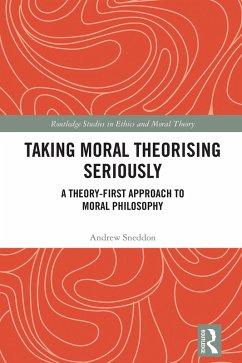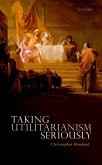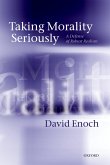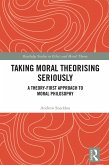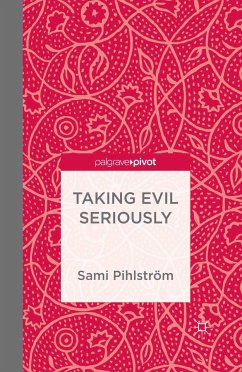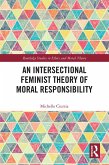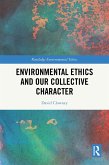Philosophers have long neglected the difficulties of identifying and using good input for moral theorising. The first part of the book argues that we should use "contrastively successful" judgements as input. A moral judgement about a case must be shown to be interpersonally superior to alternatives to qualify as input for moral theorising. The next part of the book follows recent work on theoretical virtues in science to develop an account of virtues of moral theories. It argues that moral theorists should seek defeasibly parallel maximisation of the virtues of moral theories. It then applies this overall account of a method for moral philosophy to the topic of agent-relativity and agent-neutrality.
Taking Moral Theorising Seriously will appeal to researchers and graduate students interested in moral philosophy and philosophical methodology.
Dieser Download kann aus rechtlichen Gründen nur mit Rechnungsadresse in A, B, BG, CY, CZ, D, DK, EW, E, FIN, F, GR, HR, H, IRL, I, LT, L, LR, M, NL, PL, P, R, S, SLO, SK ausgeliefert werden.

